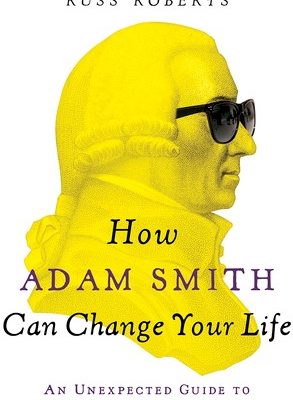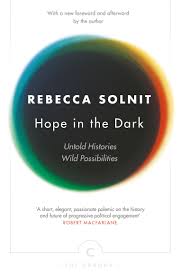I think therefore I am, declared French philosopher Descartes. Man thinks he is a thinking animal. However, the history of mankind has plethora of instances when man abandoned all his thinking and acted in defiance to all sane arguments. Rationality and irrationality rule over man in varying measures and a lot of activities of man is not compatible with his status as a thinking animal. Ideally, rational thinking should not breed so much killing and subjugation of members of one’s own species. A thinking species should not be destroying its home like man destroy this earth. Education too becomes helpless at times and we see some of the most unacceptable behaviour comes from the most educated. In this connection, one question is, how to think better to improve our lives on this planet? Can we teach a man to think for himself? In the midst of an internet revolution and social media explosion, what happens to thinking? In his interesting book titled “ How to think: A guide for the perplexed” Alan Jacobs goes after a skill which man needs to learn so urgently. He looks at the many battles thinking has to face and win.
It is easy not to think about anything and thinking in that sense is hard work. Only when we think, our prejudices and deeply held beliefs are subjected to scrutiny. That’s why Alan Jacob says “to think or to dig into the foundations of our beliefs is a tragic risk. There are no guarantees that it will make us happy or even give us satisfaction.”. In this book, Alan Jacobs explores the many hindrances to our thinking as well as the many factors which affect our thinking.
Echo chambers
Keen observers of social media will be familiar with man’s increasing discomfort in accepting those who disagree with him, as equally intelligent and decent human beings. Social media groups tend to exclude those who hold a different opinion and once this continues for a long time, we find it extremely difficult to see any value in anything other than what we hold on to. The groups which think alike form its own echo chambers and this has immense significance in the ongoing political debates in democracies including India. If the space for democratic debate is shrinking in India, we must also search its roots in this culture of echo chambers. There is a pathological mistrust of the other’s view and fanatical attachment to one’s own convictions. We can ask ourselves one question. How many times do we make an effort to read someone who strongly disagrees with us? We always have a tendency to read those scholars who are aligned to our views and thus help us to reinforce our opinions. Even when facts appear wrong, we have a reluctance to climb down. Alan Jacobs shares an interesting anecdote from great Economist John Maynard Keynes. When accused of having flip-flopped on some policy issues, Keynes acerbically replied. “ When the facts change, sir, I change my mind. What do you do? “This story is too good to denounce all sorts of the fanaticism of thoughts and to welcome open-mindedness. In other words, there is no enemy like a closed mind to mature thinking. Also, remember that in the post-truth world ‘facts’ have to wage a relentless battle with emotions and personal beliefs.
Lumping, Sunk cost
The author discusses in detail the ideas on lumping and sunk cost. Human culture is very prone to lump people together. However, this categorisation has its own pitfalls. We sometimes do not see the individual as an individual with his/her own opinion or identity. We tend to identify people with various groups they belong to and develop our own prejudices. This often develops a misunderstanding of one’s position. According to Alan Jacobs, sunk cost is a major factor which prevents us from approaching an issue with an open mind. According to him, “ the more people have invested in a particular project, the more reluctant they are to abandon it, no matter how strong the evidence indicating that it’s a lost cause. “ I am sure that we are familiar with this situation in all extreme forms. Once we follow an ideology, it becomes far more difficult to abandon it even while confronting hard realities.
Argument as warfare
In the discussion on thinking , one important component is the way, we conduct our argument. There is an increasing tendency to see all arguments as some kind of warfare where one has to either win or lose and that fixation changes the very idea of argument sometimes. To drive his point, Alan Jacobs refers to one important book (Metaphors we live by) by George Lakoff and Mark Johnson which discussed our metaphors very deeply. Look at some of the examples where we find the usage of certain words which identify argument as a form of warfare. Eg. He attacked every weak point in my argument, I demolished his argument, I have never won an argument with him, If you use that strategy he will wipe you out. Our obsession with identifying all arguments as warfare misses the point that argument could be a wonderful way to achieve mutual understanding and a means to clarify one’s views. The question is, do we need to be insanely competitive about everything? Whatever is the debate, we must not lose humanity. According to Alan Jacobs “when people cease to be people because they are, to us, merely mouthpieces of positions we want to eradicate, then we, in our zeal to win, have sacrificed empathy……. “ Along with the danger of certain metaphors in deviating our thinking, Alan Jacobs warns us about the heavy influence of myths on our understanding of things and the need to detach ourselves from them when it is needed.
Pleasures and dangers of thinking
Hannah Arendt wrote,” There are no dangerous thoughts; thinking itself is dangerous”. Thinking comes with a price. It may unseat us from our prejudices and illusions. It may force us to question injustice and suppression of human liberty. It is precisely for this reason, thinking individuals are anathema to totalitarian regimes. Such regimes prefer a population which have ceased to think for themselves. Thinking may also separate us from some of our friends. If any friend deserts us when we changed our opinions as a result of genuine thinking, we can perhaps say they were not our true friends. But as Alan Jacobs rightly concludes, thinking has an ultimate reward. That reward is the pleasure of working towards the truth. The pleasure of searching and understanding. The pleasure of freeing ourselves from the bondage of metaphors and myths. These benefits are for people who are ready to do the hard work of thinking. There was never a more urgent time to force people to think. As social media overwhelm us and democratic institutions totter under the weight of propaganda, thinking becomes a necessity. The point is that we must ensure our youngsters are not only armed with educational qualifications but also with essential tools for thinking. Our hope lies there. How to think from Alan Jacobs is a very timely and essential book for our tumultuous times.







2 Comments
Sumana Ghosh
September 14, 2019 at 8:12 amBoby , as always “Marvellously written “👏👏👏 . All the more as it brings about the need to ‘ Think Differently ‘ in the right way . I m just waiting to see your name in print media, splashed all across. And definitely, a book of your own .
Boby George
September 14, 2019 at 9:56 amAs always thanks a ton Sumana for reading and commenting without fail. I really felt that the book is so timely in the anti-thinking environment we live in.